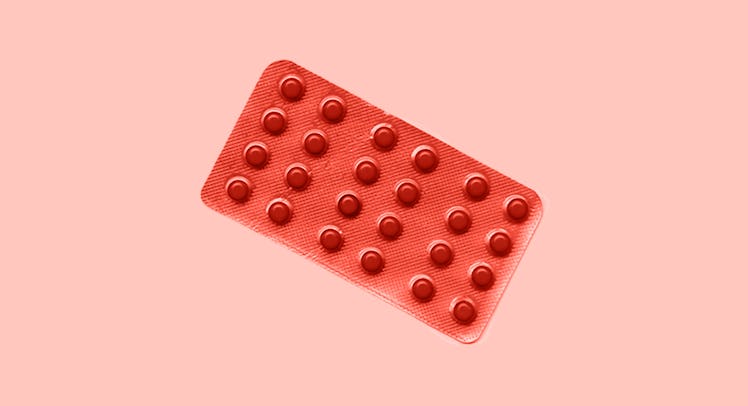Allergy Medications Cause Problems With Male Fertility
Benadryl could be why your swimmers aren't swimming like they used to, a growing body of research reveals.

Allergy medications like Benadryl may cause problems with sperm production and male fertility, according to a recent literature review involving studies on rats, mice, bulls, and (believe it or not) some humans. The findings demonstrate how antihistamines directly affect testicular function and the production of male sex hormones. This might mean aspiring fathers and men looking to expand their families may be better off letting that rash itch.
“The data compiled in this review indicates the crucial involvement of histamine in orchestrating testicular functions,” study co-author Carolina Mondillo of the Institute of Experimental Biology and Medicine in Argentina told The Guardian. “But even so there is still much to learn about the implicated mechanisms.”
Histamines are a chemical compound released by cells in response to an injury or infection. When people have allergies, their bodies mistakenly interprets something like pollen as a threat and release histamines, which can cause sneezing, congestion, itching and, in severe cases, can set off a biochemical cascade that ends in anaphylactic shock and death. But that’s not histamine’s only job—past research has shown that histamine receptors play a direct role in the production of sex hormones and sperm. Antihistamines such as Benadryl stop histamines from attaching to cells—which is great if you don’t want to sneeze; less so if you want to get someone pregnant. Thanks, little pink pill.
Mondillo and her team reviewed 62 studies on the subject. While animal experiments (which have limited implications for us) made up a bulk of the research, the review included more than 15 human studies, as well. The research demonstrated that antihistamines can interfere with sex hormone production in men, which could lead to mutated sperm with decreased motility and lower sperm count overall. However, the good news is that antihistamines with H-2 blockers seem to adversely impact male fertility much more than H1 blockers—and H1-blockers are the one’s found in most common allergy medications, including Benadryl.
Still, additional research outside of the current work shows that antihistamines could negatively impact female infertility, by interfering with histamine receptors in the uterus. Mondillo and her colleagues say that the current body of research on antihistamines could lead to better allergy interventions that may not mess up conception so much. Darren Griffin, a professor of genetics at the University of Kent who was not involved in the study, argues that it’s a delicate balance and untreated allergies could have unforeseen consequences on fertility as well.
“Any medicine that has the potential to do good also has the potential to do harm and side effects of over-the-counter drugs constantly warrant further investigation, and the use of antihistamines is on the rise,” he told The Guardian. “In any event, however, persistent sneezing is not a particularly good reproductive strategy either, so perhaps taking the antihistamines when necessary is the lesser of two evils.”